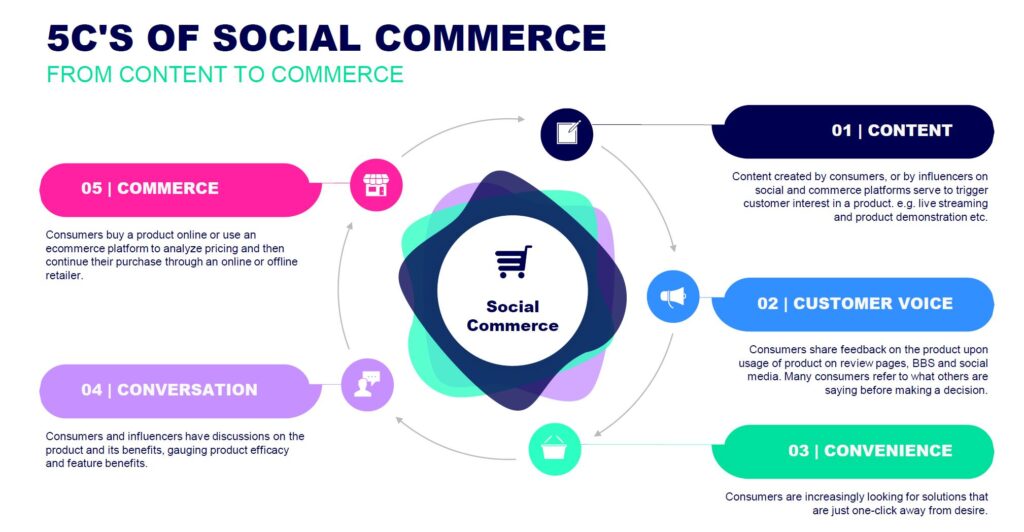The digital marketplace, a space where consumers and businesses converge in an ever-evolving landscape, has been reshaped year after year. As we pass through the last quarter of 2023, it’s evident that the evolution of e-commerce shows no sign of slowing down. From AI-powered personalization to the metaverse’s influence on shopping, the trends in online retail for this year are set to transform the way we shop and sell.
Personalization Beyond Prediction
Personalization has long been a buzzword in e-commerce. However, this year, it has gone beyond basic product recommendations. Thanks to advances in artificial intelligence (AI) and machine learning, personalization is becoming more intuitive. It involves analysing a shopper’s browsing history, past purchases, and even their online behaviour to create a holistic view of the individual. The result? Tailored shopping experiences that anticipate needs and desires, from customised product suggestions to individualised marketing messages.
The Metaverse: A New Retail Reality

The metaverse, a convergence of augmented and virtual realities, is revolutionising online retail. Virtual showrooms, where customers can explore and interact with products in a digital environment, are gaining traction. Brands are also experimenting with virtual pop-up shops and metaverse influencers, changing the way we perceive and experience shopping.
The Sustainable Shopping Revolution
As environmental concerns continue to mount, the demand for eco-friendly products and sustainable practices is on the rise. In 2023, e-commerce is responding with a surge in sustainability. More brands are adopting green practices, from using recyclable packaging to sourcing ethically produced materials. Consumers now have access to transparent information about a product’s environmental impact, allowing them to make more informed, planet-friendly choices.
Fulfilment Innovation
The race for faster, more efficient fulfilment methods is reaching new heights. Same-day and even one-hour delivery options are becoming commonplace. In addition to speed, focus is shifting toward reducing carbon footprints by optimising delivery routes and exploring eco-friendly packaging alternatives. Automation, powered by robots and AI, is streamlining warehouse operations and enabling round-the-clock order processing.
The Rise of Social Commerce

Social media platforms are no longer just spaces for socialising; they’re becoming dynamic shopping hubs. Social commerce is allowing users to discover, share, and purchase products without ever leaving their favourite social apps. With features like shoppable posts and integrated checkout options, brands are increasingly turning to social media to boost sales and connect with their audience in a seamless manner.
Voice Commerce
Voice-activated assistants, like Alexa and Google Assistant, are revolutionising the way we shop. Voice commerce is on the rise, with consumers using voice commands to search for products, compare prices, and make purchases. This trend is changing the way brands optimise their product listings and advertising for voice search, creating new opportunities for engagement.
Blockchain for Transparency and Security
Blockchain technology is emerging as a powerful tool for ensuring transparency in e-commerce. It can provide consumers with a secure and verifiable record of a product’s origin, authenticity and supply chain. This is particularly vital in industries like luxury goods, where counterfeits are a concern. Blockchain is also playing a role in secure payment options, enhancing online security and trust.
Augmented Reality Shopping

Augmented reality (AR) is transforming the online shopping experience. AR apps allow customers to virtually try on clothing and accessories, visualise how furniture fits in their home, or see how makeup products look on their skin. It’s reducing the uncertainty associated with online purchases and providing a more immersive and interactive shopping journey.
Ethical Consumerism
The conscious consumer is here to stay. Consumers are not just looking for products; they’re seeking brands that align with their values. Ethical and transparent business practices, from fair labour conditions to philanthropic initiatives, are becoming selling points. Brands that commit to social responsibility are gaining loyalty from a growing demographic of conscious shoppers.
Bottom Line
As e-commerce continues to evolve, one thing is clear: the digital marketplace is a dynamic and innovative ecosystem. From AI-driven personalization to the metaverse’s influence on shopping, these trends are not just shaping the way we buy and sell but also how we interact with products and brands. The landscape is shifting toward more sustainable, efficient, and personalised experiences. The future of e-commerce is an exciting blend of technology and consumer-conscious retail, where innovation knows no bounds. As we step further into closing this year, we are not just witnessing an evolution; we are actively participating in the digital retail revolution.



